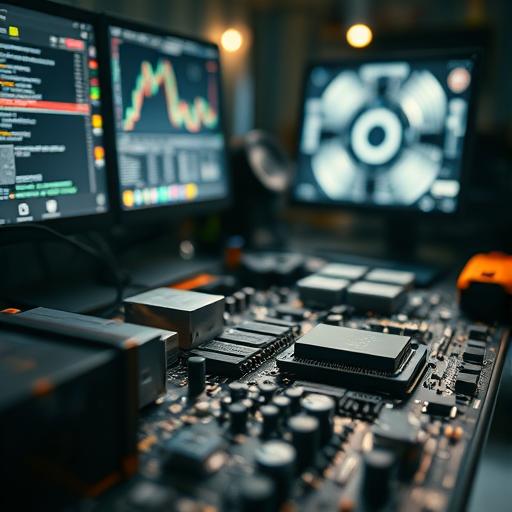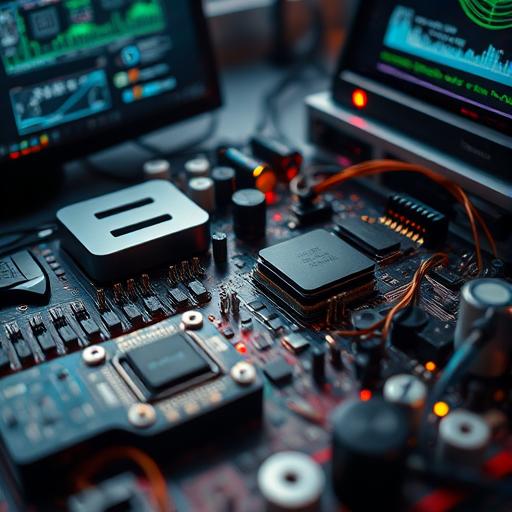The rapid evolution of technology has led to an unprecedented level of gadget penetration in everyday life. From smartphones and laptops to smart home devices and wearables, technology has become an integral part of modern living. While these gadgets have made life more convenient and connected, they also have a significant impact on our daily lives, affecting our relationships, health, and productivity.
The Benefits of Technology Gadgets
Increased Convenience and Efficiency
Gadgets like smartphones, laptops, and smart home devices have made daily tasks easier and faster. For instance, with a smartphone, you can manage your schedule, communicate with others, and access information on the go. Smart home devices, such as Amazon Echo and Google Home, have simplified tasks like controlling lighting, temperature, and security systems. These gadgets have improved time management and organization, allowing us to accomplish more in less time.
Enhanced Connectivity and Communication
Social media, messaging apps, and video conferencing tools have bridged geographical gaps, making it easier to stay connected with loved ones and network with others. Platforms like Facebook, Twitter, and LinkedIn have enabled us to maintain relationships and build new ones, regardless of distance. Video conferencing tools like Zoom and Skype have made remote meetings and virtual events possible, saving time and resources.

Access to Information and Education
The internet and online resources have made it possible to access a vast amount of information and educational content. Online learning platforms like Coursera, Udemy, and edX have democratized access to education, enabling us to acquire new skills and knowledge. Gadgets have also made it easier to learn new languages, explore new hobbies, and stay up-to-date with current events.
The Drawbacks of Technology Gadgets
Negative Impact on Mental and Physical Health
Excessive gadget use has been linked to increased stress, anxiety, and depression. Sedentary behavior, eye strain, and sleep deprivation are just a few of the physical health risks associated with gadget use. Moreover, the constant stream of notifications and alerts can be overwhelming, leading to feelings of burnout and exhaustion.
Social Isolation and Decreased Face-to-Face Interaction
While gadgets have made it easier to connect with others, they have also contributed to social isolation and decreased face-to-face interaction. Excessive gadget use can lead to a decline in social skills, deepened feelings of loneliness, and decreased empathy. Furthermore, the lack of nonverbal cues and face-to-face interaction can lead to misunderstandings and miscommunications.
Distractions and Decreased Productivity
Gadgets can be distracting, leading to decreased focus and productivity. Social media, email, and messaging apps can be significant productivity killers, especially if not managed properly. To mitigate this, it’s essential to set boundaries, prioritize tasks, and use tools like website blockers and productivity apps.
The Impact on Relationships and Family Dynamics
Changing Communication Patterns
Gadgets have altered the way we communicate with family and friends. While they have made it easier to stay connected, they have also changed the nature of communication. For instance, texting and messaging apps have become popular modes of communication, but they lack the emotional depth and intimacy of face-to-face interactions.
Setting Boundaries and Finding Balance
To maintain healthy relationships in a gadget-dominated world, it’s crucial to set boundaries and find balance. This can involve setting device-free zones and times, prioritizing face-to-face interaction, and engaging in activities that promote bonding and connection.
Conclusion
In conclusion, technology gadgets have had a profound impact on everyday life, bringing about both benefits and drawbacks. While they have made life more convenient, connected, and accessible, they have also affected our relationships, health, and productivity. By being aware of these impacts and taking steps to mitigate the negative effects, we can harness the power of technology to improve our lives without sacrificing our well-being.
FAQs
- Q: How can I reduce my screen time and gadget use?
To reduce screen time and gadget use, consider setting screen time limits, finding alternative activities, and using website blockers. You can also establish device-free zones and times, such as during meals or before bed.
Yes, excessive gadget use has been linked to increased stress, anxiety, and depression. The constant stream of notifications and alerts can be overwhelming, leading to feelings of burnout and exhaustion.

To maintain healthy relationships, set boundaries, prioritize face-to-face interaction, and engage in activities that promote bonding and connection. Consider scheduling device-free time and setting up regular video calls or meetups.

Yes, taking a digital detox can have several benefits, including improved focus, reduced stress, and increased productivity. A digital detox can help you recharge, reflect, and reconnect with the world around you.
To ensure your children’s gadget use is safe and healthy, set limits, monitor usage, and encourage healthy gadget habits. Consider setting up parental controls, establishing device-free zones and times, and promoting physical activity and outdoor play.
